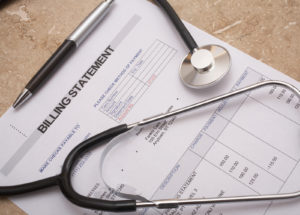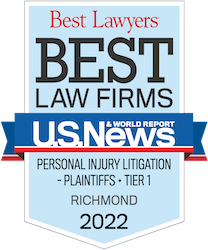Preparing to file a personal injury claim can be incredibly stressful, especially if you have suffered significant financial, physical, and emotional losses from getting injured. Will you recover enough money for the medical bills, lost income, and other expenses that someone else’s negligence caused? What kind of damages can you sue for?
In Virginia, the damages you can receive in a lawsuit are economic, non-economic, and punitive damages. This article goes in-depth into each type of compensation, including how they get calculated, the evidence needed to prove these damages, and how a skilled personal injury attorney can help you build the strongest case possible.
Economic Damages
Also called “special damages,” this category refers to all the measurable financial losses or expenses directly caused by getting injured. Calculating economic damages is often the most straightforward element of filing for compensation, but that does not mean it is simple.
The ripple effects of a severe injury can last a long time. It is important to keep detailed records of receipts, bills, invoices, and any other evidence about how you have been financially affected. These economic damages will generally include:
Medical expenses

Getting reimbursed for hospital bills and other direct medical expenses is one of the biggest priorities of a personal injury lawsuit, especially:
- Ambulance transportation and emergency room services
- Bills for doctors, nurses, and other medical providers
- Ongoing treatments, like physical therapy
- Prescription medications
- Medical equipment, like a wheelchair or respirator
- Home health aide services during recover
Lost Income
Serious injuries will require victims to spend weeks or months away from work. In the case of a catastrophic injury, they may have to leave the workforce altogether.
You can seek compensation for this lost income, such as:
- Salaried or hourly wages
- Any retirement or insurance benefits that were part of your employee benefits package
- Commissions and bonuses
- If you can no longer earn the same income, compensation for a permanently diminished earning capacity
- In Wrongful Death claims, compensation for the wages the deceased loved one would have earned
Other Out-of-Pocket Expenses Due To Getting Injured
- Property damage, such as vehicle damage from an accident
- Rental car expenses, if needed
- Assistive devices for permanent or semi-permanent disabilities, like modifications to your home or car
- Lost income if a family member has to stop working to take care of you
- Travel costs to and from seeing medical providers
Non-Economic Damages

The second category of damages addresses all the non-economic costs of getting seriously injured, which are also called "general damages." These losses include emotional and psychological harms that are difficult to calculate but are still a real consequence of the liable party's negligence.
Virginia courts recognize that these losses deserve compensation, but it is still beneficial for your case to document them somehow. You can try keeping a journal about your recovery and how your life has been affected. Include details like your pain levels on a day-to-day basis, any activities you can no longer enjoy, mental health struggles, and the impact your health problems are having on close family members.
Some examples of non-economic damages are:
- Physical pain and discomfort
- Emotional suffering and distress, like anxiety, depression, or PTSD
- Reduced quality of life, especially from being permanently disabled or disfigured
- Inconvenience, from mobility restrictions and other long-term challenges
- In Wrongful Death cases, the mental anguish caused by losing a loved one’s support, companionship, and guidance
Punitive Damages
This final category of damages will only apply in a few personal injury cases, which generally involve extreme recklessness and disregard for human life. Unlike special or general damages, punitive damages do not compensate the victim. Instead, they punish the defendant. They also make an example of the liable party as a warning to the community as a whole. The goal is to deter others from engaging in the same destructive behavior.
Virginia law caps punitive damages at $350,000. If a jury awards the plaintiff more compensation, the presiding judge will lower it to the legal maximum.
Some cases that may entail punitive damages include:
- A drunk or texting driver that causes fatal or catastrophic injuries
- A nursing home that severely neglects patients because of system-wide lapses
- A manufacturer that knowingly sells a defective product that harms consumers
Time Limits In Personal Injury Cases
In most personal injury cases, there is a two-year time frame from the date of injury (statute of limitations) for initiating a claim. There are several special circumstances where this is not always the case. Injured victims should consult with a personal injury attorney for advice and direction. This is especially important in a claim against a city, state, or government municipality or if the victim is a minor.
Calculating the Value of Your Personal Injury Damages

It is tough to place a dollar amount on what it means to suffer a severe injury, but that is precisely what happens during the personal injury claims process. Whether your case makes it to a court trial or if you accept a settlement from the liable party’s insurance company, you will need a persuasive accounting of all your damages.
A skilled personal injury lawyer can prepare a detailed evaluation of the losses you have suffered using evidence like:
- All the receipts and invoices associated with your injuries, including hospital bills, property damage, and out-of-pocket costs
- Employment records or a letter from your attorney that verifies the lost income
- Journal entries showing your pain and suffering, as well as statements from loved ones describing your struggles
- Police reports, witness statements, testimony from the experts, and any other evidence that establishes the liable party’s negligence
Other essential factors that will impact the value of your personal injury claim include:
- The severity of your injuries according to medical records, and how much they affect daily life
- Whether you have a permanent impairment or disability
- The funds available from the liable party’s insurance policy
- Whether you contributed to the cause of your injury in any way
- The anticipated future damages associated with your injuries, like more medical expenses or further lost income
If you have suffered injuries because of someone else’s irresponsible behavior, you deserve fair compensation for your financial losses and all the intangible costs of this ordeal. Being able to recover the maximum value of your personal injury claim will ultimately come down to the skill of your personal injury attorney to gather solid evidence and build a compelling case on your behalf.

